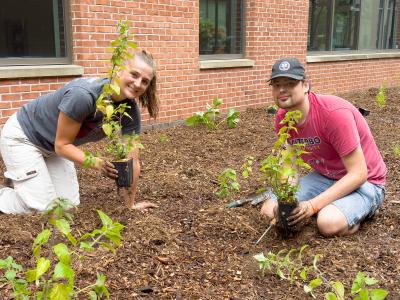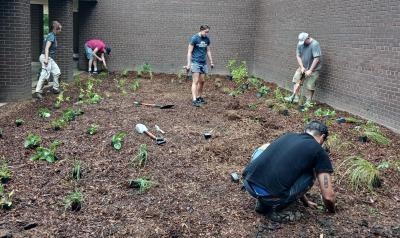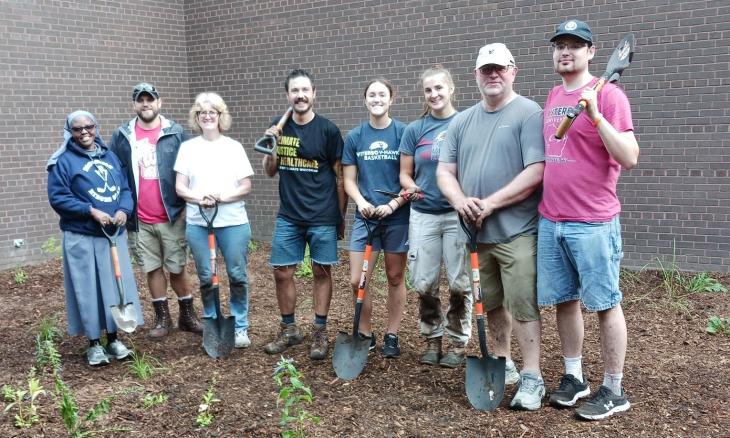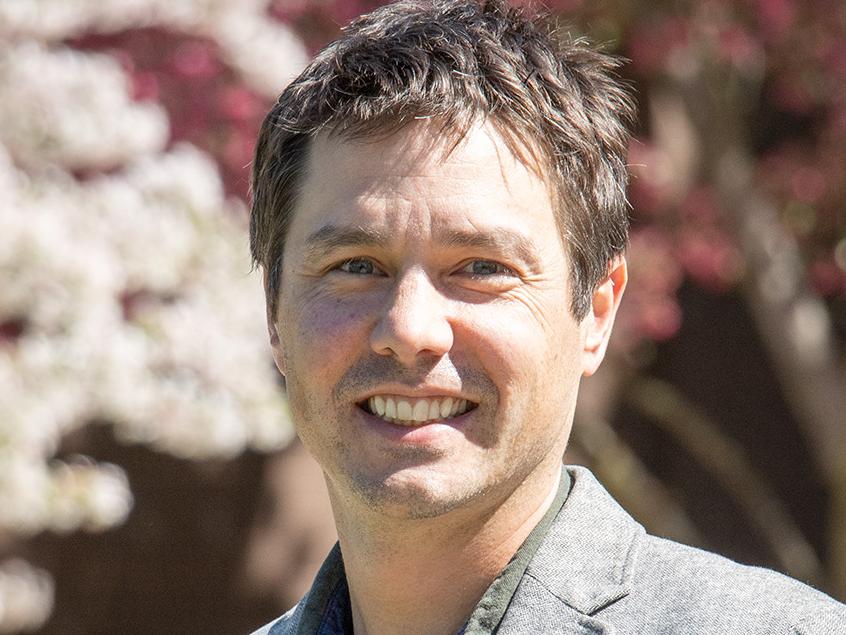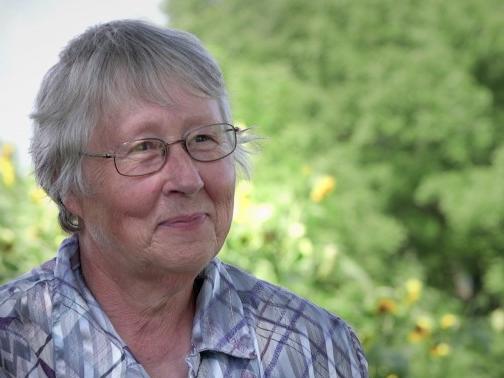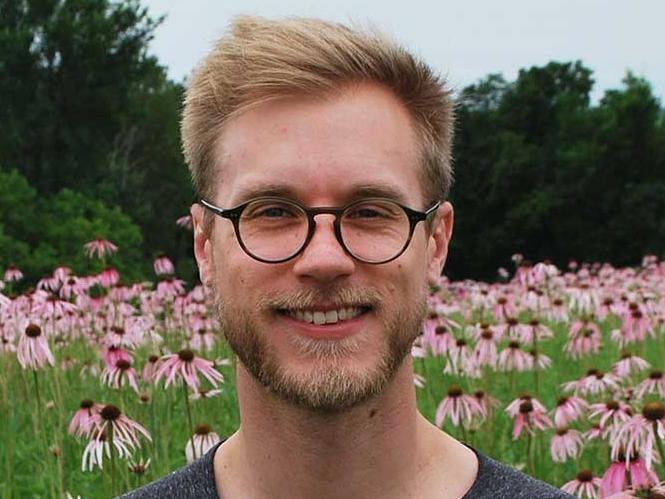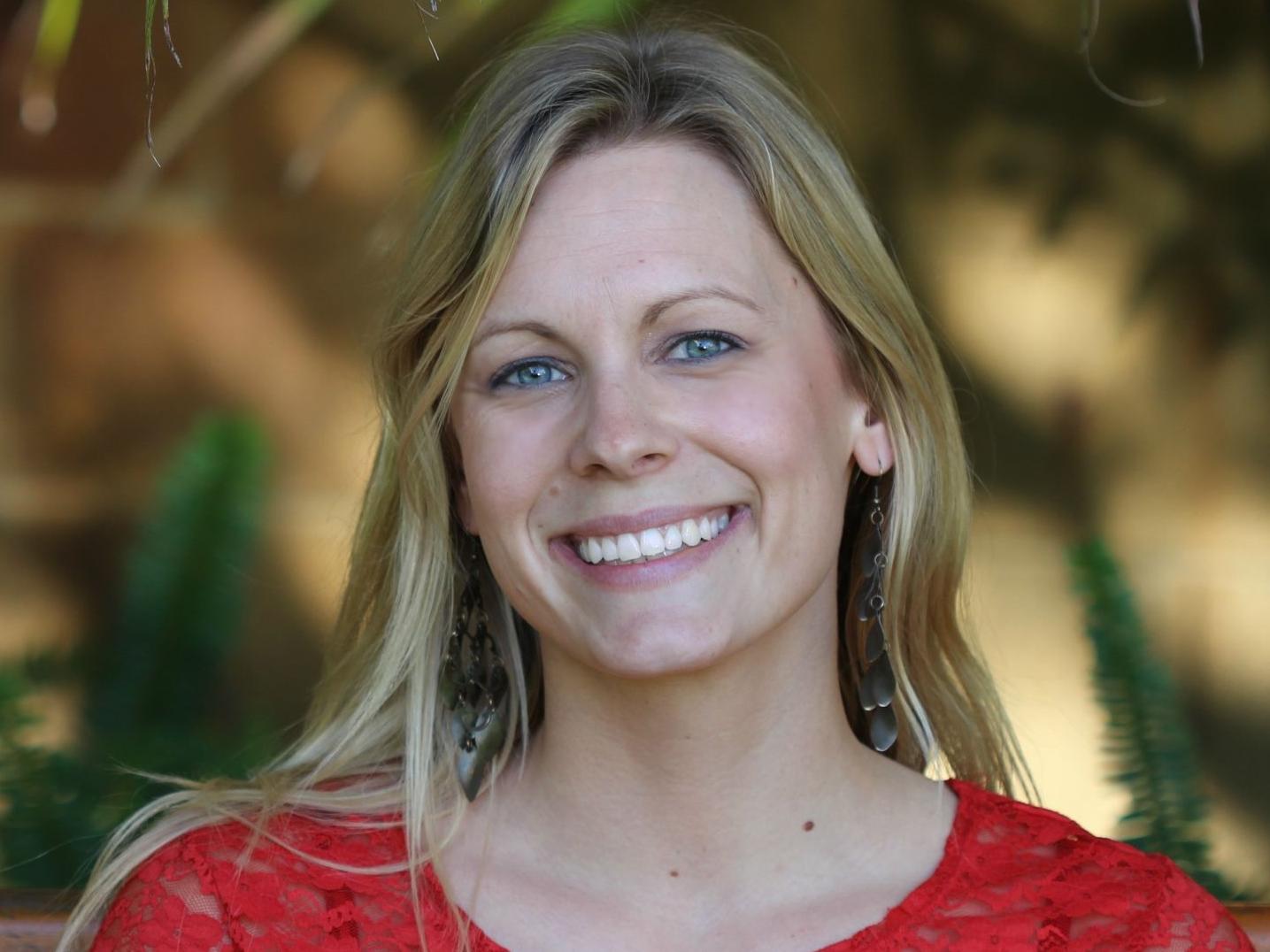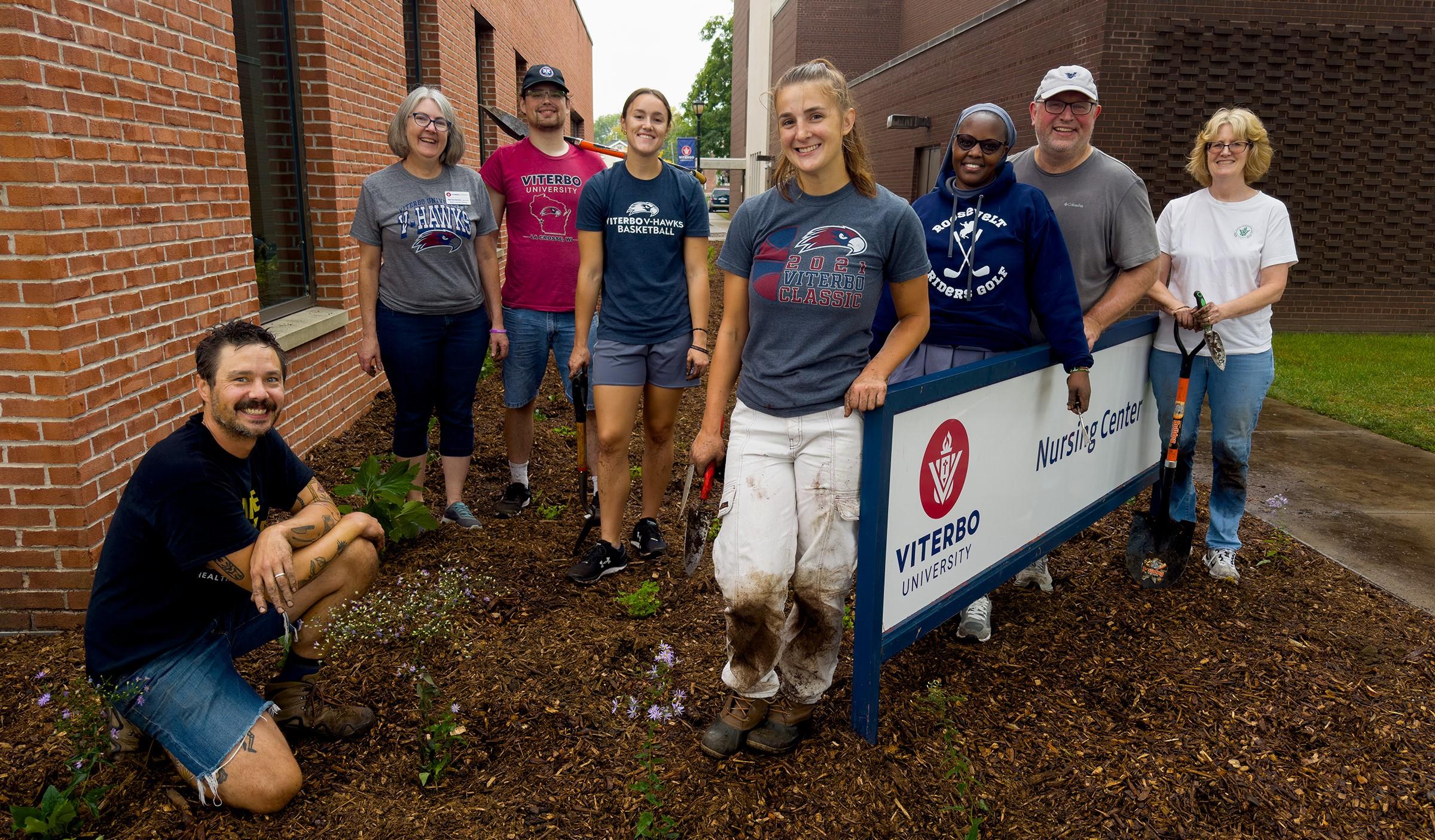
Viterbo University senior nursing major Emily McCurdy and senior biology major Ben Lisek have talked much over the past few years about planting a pollinator garden on campus as members of the student Sustainability Club. On a recent drizzly Saturday morning, about a dozen Viterbo University students, faculty, and staff members gathered to turn that talk into reality. They planted nearly 300 native flowering plants and grasses in two gardens flanking the Fine Arts Center.
The gardens might not look like much yet, but a couple summers from now they'll be abuzz with activity. They'll provide a sorely needed healthy habitat for pollinating creatures, certainly, but the gardens also are intended to serve as a vibrant and visible reminder of Viterbo's commitment to sustainability.
McCurdy and Lisek helped make the long-discussed pollinator gardens a reality when they successfully applied for a $5,000 Youth Climate Action Grant from the city of La Crosse during summer break.
“I just felt so ecstatic to be out there putting those plants in the ground,” McCurdy said. “I kind of feel motherly toward it. I want it to grow and thrive because we worked so hard on it.”
By the time the pollinator gardens really get going, Lisek expects to be in medical school. Although he won’t be here to see the gardens fill in and fill up with pollinators, it means a lot to him to play a part in their creation. “I’ll leave behind something of me at Viterbo,” said Lisek, who has an environmental science minor and serves as president of the Sustainability Club.
In addition to paying for the garden plants from Driftless Area Natives, the grant also paid for a delegation of Viterbo faculty, staff, and students to attend a campus sustainability conference in the Twin Cities.
McCurdy said the Viterbo contingent came back from the Upper Midwest Association for Campus Sustainability conference with inspiration to keep pushing and with many ideas on other things that could be done to make the university more sustainable, including ways to strengthen the Viterbo cafeteria composting program started by the Sustainability Club.
Most students at the conference were majoring in environmental science or related scientific fields. When McCurdy told other students she was a nursing major, they were surprised, but it makes sense considering that McCurdy’s mentor is Cameron Kiersch, a nursing professor and driving force in Viterbo’s campus sustainability efforts.
A former critical care nurse who now leads the university’s Direct-Entry Master of Science in Nursing (DEMSN) degree program, Kiersch has found numerous ways in teaching nurses to drive home the connection between planetary health and people being able to lead healthy lives. Students in one of his nursing program classes, for example, launched a podcast focusing on the intersection of climate and human health.
Kiersch said he had many conversations at the UMACS conference with people from other universities interested in finding ways to incorporate education about sustainability into their nursing programs.
For Kiersch, finding ways to incorporate planetary health lessons into classes across the spectrum of academic offerings is vital to building a campus culture committed to sustainable practices. Any campus that wants to improve sustainability, he said, has to have student engagement and involvement.
“Faculty integrating these things into their courses is the best way to get students engaged in sustainability efforts,” Kiersch said. “I don’t fault the students at all for not being more involved. They are just so busy, so if we want to get this stuff done, we need to find a way to incorporate it into our classes.”
Kiersch demonstrated the power of student involvement last year when he taught mission seminars both semesters that focused largely on showing the need for a long-term campus climate action plan. As a Catholic Franciscan institution, his students emphasized in presentations to the Viterbo administrative leadership team, the university should be creating its own climate action plan based on a template suggested by the Vatican’s 2015 environmental encyclical, “Laudato Si.”
After Kiersch’s students made their case to the Viterbo leadership team last May, including presenting a seven-year list of goals and actions for a climate action plan, the team affirmed full support for creation of a plan and President Rick Trietley committed $10,000 in this year’s budget to begin work on a plan.
“We were floored! The students couldn't believe it,” Kiersch said, noting the pollinator garden project happened because of mission seminar students’ efforts, too. “This is why I do what I do. I love to see students realize their potential and see their hard work materialize into something they can be proud of. They are the rock stars here. They trusted the process and exceeded my expectations.”

